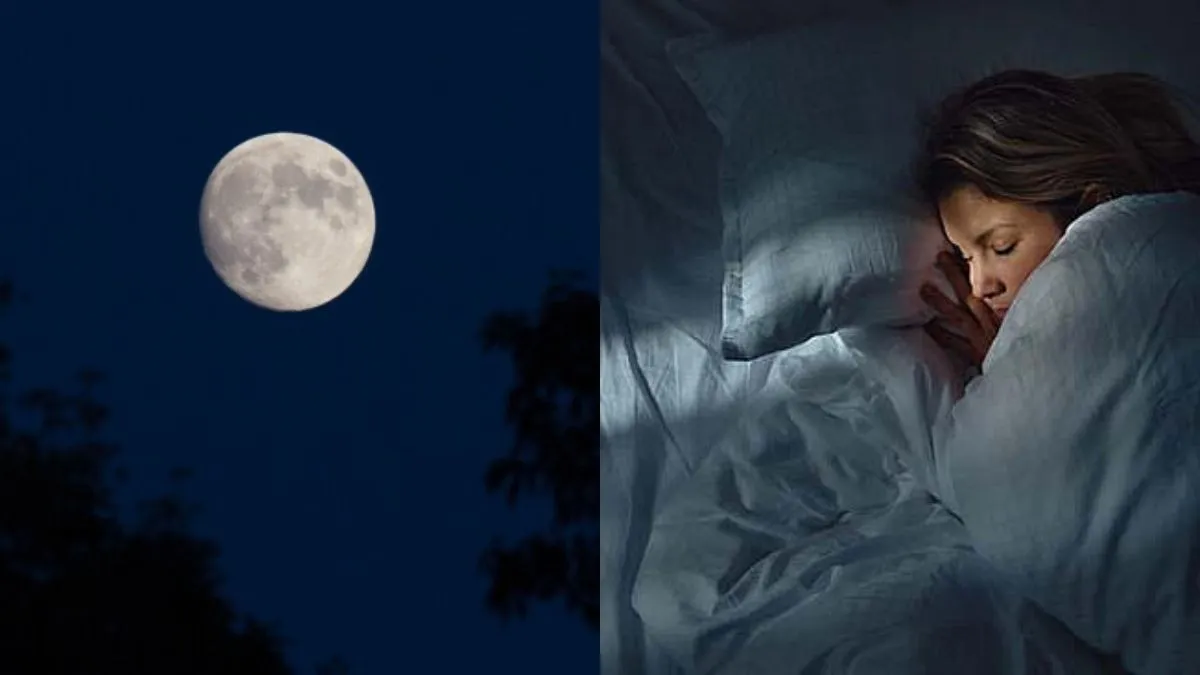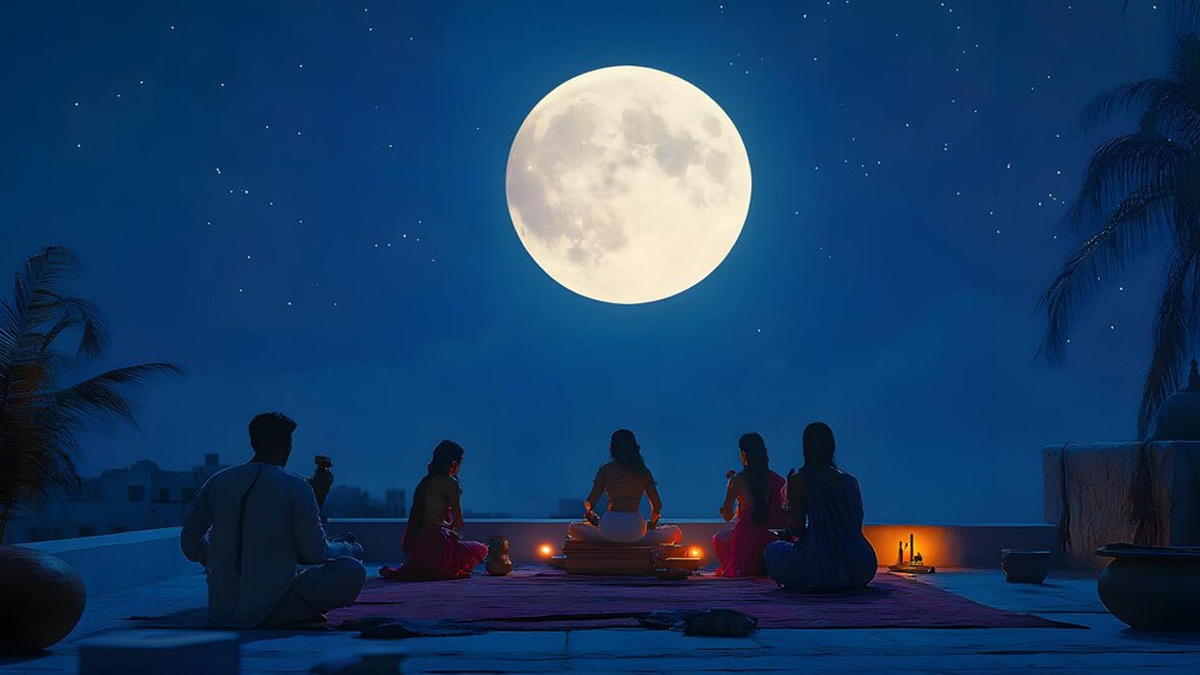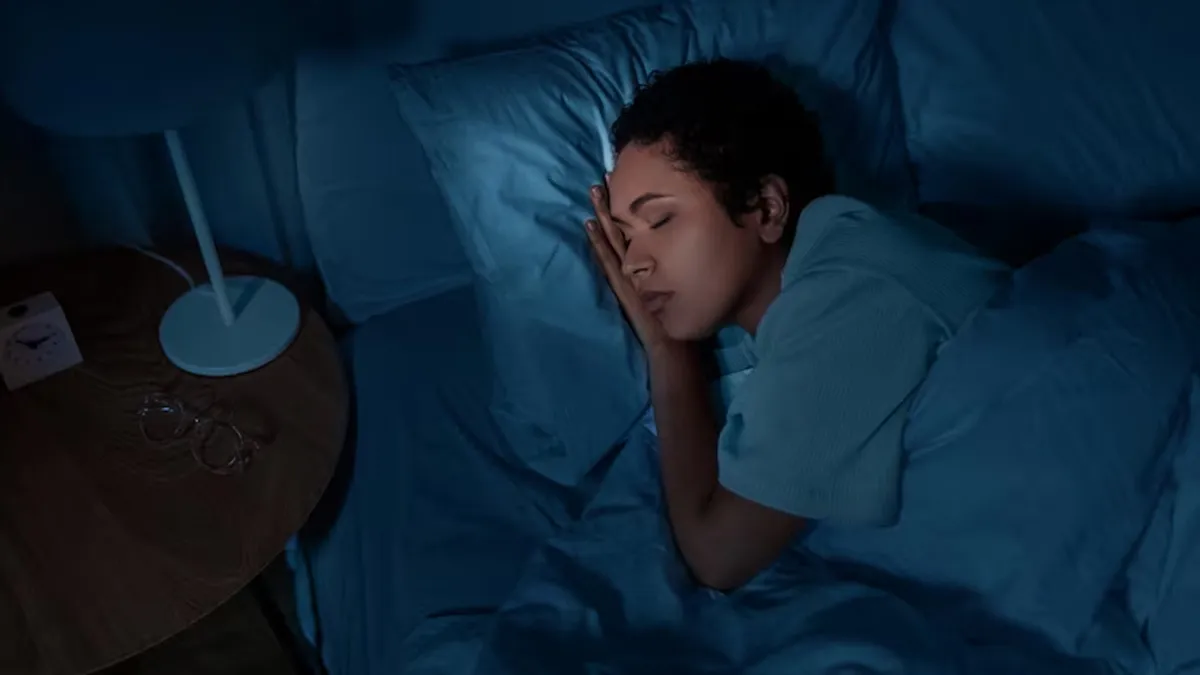
Many people believe that a full moon ruins their night’s sleep. Whether it’s tossing and turning, waking up often, or simply feeling off the next day. For years, people have suspected a link between moon cycles and sleep, and recent studies say there’s something to it. But is there real science behind this, or is it just a myth?
Table of Content:-
We asked Dr Sunil Kumar K, Lead Consultant – Interventional Pulmonology at Aster CMI Hospital, Bangalore, to explain the connection between moonlight and sleep and what you can do if the lunar cycle seems to be affecting you.
Full Moon and Sleep: What’s the Connection?![]()
Dr Sunil Kumar K breaks down the basics, “The full moon can affect sleep patterns in some people. The increased brightness at night interferes with melatonin production, which helps us fall asleep.”
That means many will:
- Find it harder to fall asleep
- Sleep more lightly
- Wake up more often during the night
Dr Kumar explains that several studies have found people sleep shorter and have less deep sleep around a full moon. Not everyone will notice this, but if you’re sensitive to light or have a tricky sleep schedule, a full moon could make bedtime more challenging.
ALSO READ: Can Snoring Increase Your Risk of Heart Attack? Here Is What Expert Says
Why Does Moonlight Disrupt Rest?![]()
Some people struggle because the bright moonlight lowers their melatonin, the hormone that tells their body it’s time for sleep. Dr Sunil explains that, “Moonlight can disturb your body’s clock, making it difficult to sleep well.” Here are possible reasons why the full moon affects sleep for some:
- Increased night-time brightness: Moonlight may reduce darkness in the room and suppress melatonin.
- Shifted circadian rhythms: The brain may treat moonlit nights similarly to lighter evenings, delaying sleep onset.
- Heightened alertness: Some people may subconsciously sense the lunar cycle and remain more alert.
- Other factors: Screen time, caffeine, stress and sleep environment still play a major role — the moon may just add to the burden.
Dr Sunil Kumar emphasises, “It’s not the moon itself that causes the problem for everyone, but the combination of brightness, environment and individual sensitivity. For some, very bright moonlight may tip them into a period of lighter or disrupted sleep.”
What You Can Do to Sleep Better on Full Moon Nights![]()
According to Dr Sunil, quality sleep starts with routine. “Go to bed and wake up at the same times,” he says. “Keep your room dark, cool, and quiet. Skip caffeine and heavy meals before bed. And only use your bed for sleep, not for work or watching TV.”
If you find your sleep suffering during the full moon phase, here are practical strategies recommended by the expert:
- Block out the light: Use blackout curtains or an eye mask to reduce moonlight entering your room.
- Limit screen time before bed: Blue light from phones or tablets delays sleep and lowers melatonin.
- Stick to a regular schedule: Go to bed and wake up at the same time every day to support your body clock.
- Keep your environment cool and quiet: A comfortable room helps offset any seasonal or lunar effects.
- Relax before bed: Gentle routines like reading or meditation reduce stress and help you fall asleep.
- If sleep problems persist for several nights, consider consulting a sleep specialist for tailored advice.
Dr Sunil also suggests activities like:
- Reading
- Listening to soft music
- Gentle stretching
All these help your mind wind down.
A study published in Current Biology found people took longer to fall asleep, had 30% less deep sleep, and slept for 20 minutes less around the full moon. Melatonin levels also dropped during these nights, confirming the connection between moonlight and reduced sleep quality.
ALSO READ: What Is The Best Sleeping Position To Avoid Lower Back Pain? Expert Shares
Conclusion
The full moon may contribute to sleep difficulties for some people, particularly those sensitive to light or with an already fragile sleep pattern. While the effect is real for some study participants, it is generally mild and manageable. By making simple adjustments to your bedroom darkness, screen habits, and bedtime routine, you can maintain healthy sleep whether the moon is full or not. Understanding the link helps you take control without giving full power to lunar cycles.
Also watch this video
How we keep this article up to date:
We work with experts and keep a close eye on the latest in health and wellness. Whenever there is a new research or helpful information, we update our articles with accurate and useful advice.
Current Version
Oct 27, 2025 15:27 IST
Published By : Vivek Kumar
.jpg)

